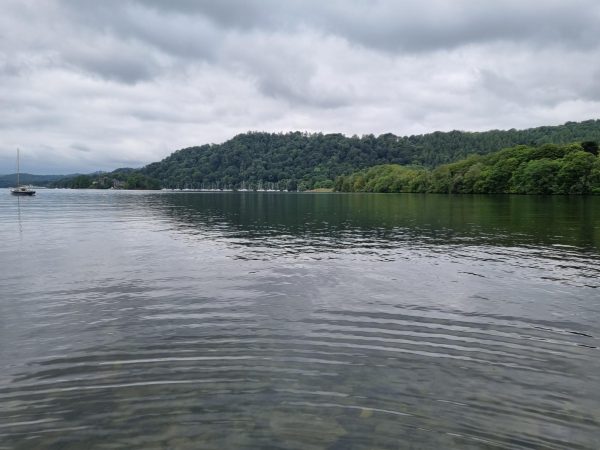Windermere Science Evening
21 November, 2023
by Rachael Halhead
Olly attended the Windermere Science Evening on the 15th November hosted by Lancaster University. The evening featured presentations from the Freshwater Biological Association (FBA), The UK Centre for Hydrology and Ecology (CEH), Environment Agency (EA) and Lancaster University.
Evening Summary
Dr Lynsey Harper (FBA) introduced Windermere and its history, detailing the timeline of human impacts on the lake through land management, sewage inputs and climate change. This has led to multiple interacting pressures on the lake, including nutrient inputs, bacterial loading and invasive non-native species as well as climate change impacts. Hence, the significant need for effective monitoring, management changes and restoration action, all of which need to involve the local community.
Dr Steve Thackeray and Dr Ellie Mackay from CEH presented the data and evidence behind this story, showing the long-term trends in lake temperature, algal growth and biological indicators to show the long-term context of recent lake changes. Presented data demonstrated that the impacts of climate change can already be seen at Windermere, as in other lakes around the UK and globally. In fact, there is an average annual increase of 0.2oC per decade, earlier onset of lake stratification, and later lake mixing dates. In contrast, nutrient inputs to the lake appear to have peaked in the 1990’s before recent decreases. However, these levels are still having negative impacts on factors such as dissolved oxygen in the context of increasing temperatures. Shifts in lake seasonal patterns can also be seen in the life cycles of algae, zooplankton and fish. Yet, different rates of change can cause negative impacts on the resilience of food webs.
Dave Hortin from the EA followed by providing an overview of the various monitoring programmes conducted to sample water quality, ensure compliance, and follow up incidents. This includes 28 spot sampling sites and 7 sondes deployed in the catchment. They carry out weekly sampling during the designated bathing water season, representative sampling of permitted non-mains discharges and compliance monitoring at water company sites. They also a programme of catchment investigations to follow up on any specific incidents or irregularities, and several examples were provided. Finally, a summary on algal blooms and how the public can be involved in reporting these and other pollution incidents led into questions from the audience, particularly relating to how both mains and non-mains sewage inputs are monitored.
Dr Ben Surridge from Lancaster University spoke about the Big Windermere Survey, giving an overview of its aims, background and logistics, before providing context for its results. While presenting the results, seasonal changes in the levels of nutrients and bacteria were discussed in terms of the short-term and long-term factors impacting the lake, such as localised weather patterns and ongoing climate change impacts. Overall, the results show a picture comparable to other lakes around the country and worldwide, where nutrient and bacterial inputs to the lake are higher than desired at certain times of the year, providing opportunities to apply knowledge and solutions from here and elsewhere within the context of lake management.
Finally, the audience Q&A enabled a range of topics to be discussed, including questions on the frequency of sampling necessary, what information is still missing, and how new technologies might fit into future knowledge gathering. In discussing the actions that need to be taken to combat the multiple stressors acting on the lake, the issue of septic tanks was mentioned, alongside a need to understand which solutions can be put in now to make the biggest difference. Before the event came to a close, speakers also appealed to the audience and wider public to continue to engage with events such as this to discuss knowledge and promote understanding, as well getting involved in the community through volunteering and other schemes to help promote action.
Want to stay on top of all things Windermere? You can find this and other useful information about the Windermere catchment, via the Windermere Community Partnership hub.
